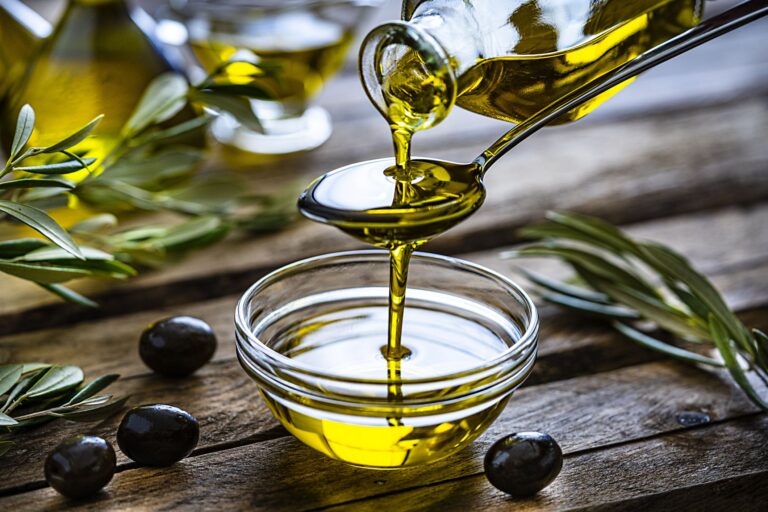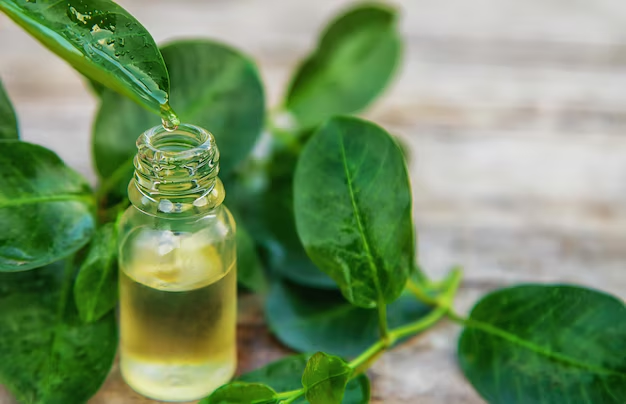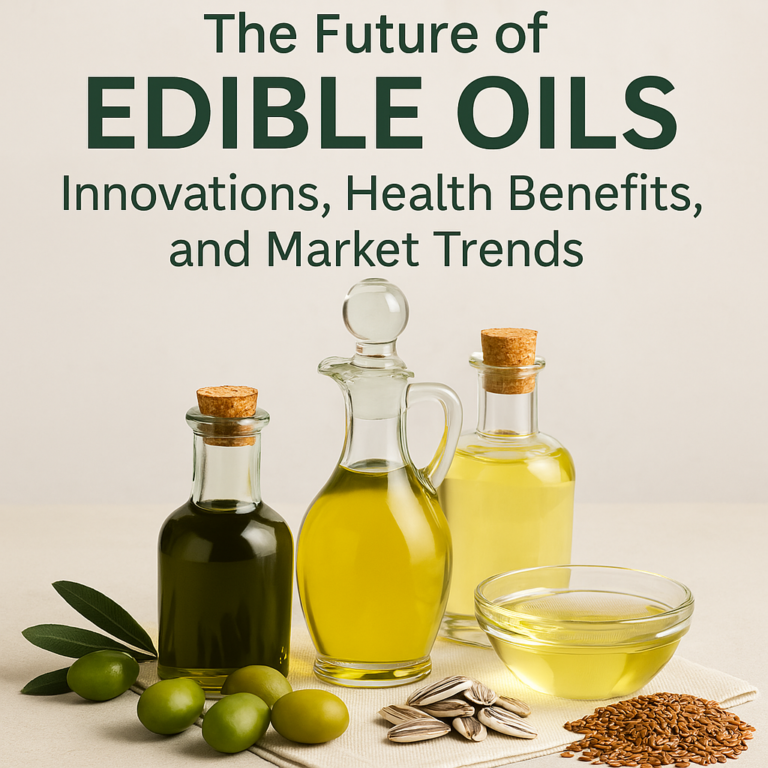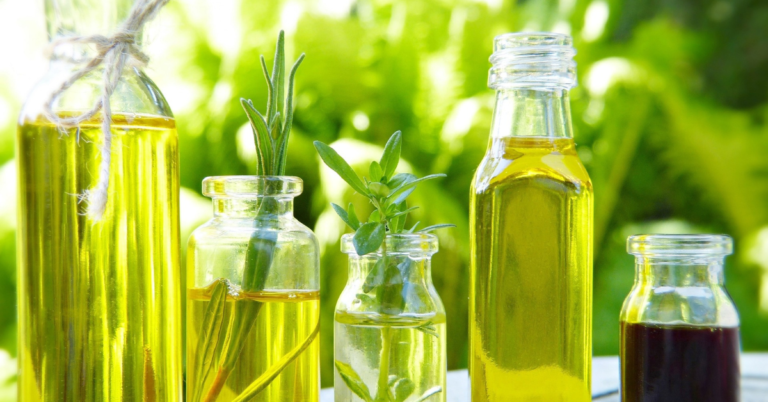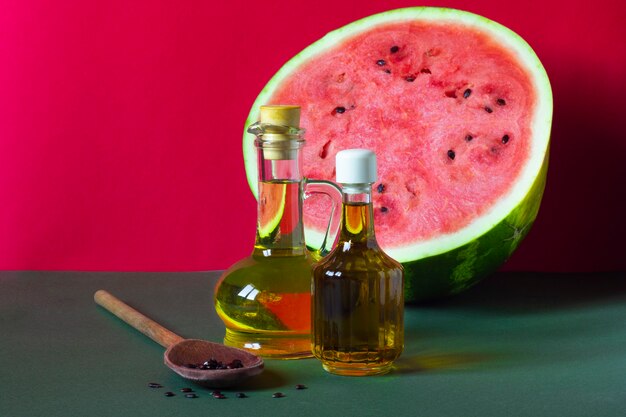
Introduction: The Hidden Gem in Natural Oils
Imagine opening up a fresh watermelon on a sweltering summer afternoon. Its sweet pulp will be enjoyed by everyone, and the seeds tossed away without a second thought. But those tiny seeds contain a secret power—these are the seeds from which Watermelon Seed Oil is drawn, a rich nutritional oils that’s making waves in beauty and food uses.
As consumers become more health-conscious, they are increasingly turning to cold-pressed oils, believing them to be a healthier alternative to heavily processed oils. Watermelon seed oils is now gaining recognition, joining other well-known oils like grapeseed oils, avocado oils, and olive oisl. But what makes it so special? In this article, we’ll explore its benefits, how it stacks up in cooking oils rankings, and why it’s becoming a staple in both kitchens and skincare routines.
What is Watermelon Seed Oil?
Watermelon seed oils, or Kalahari oils, or Ootanga oils, is oils from watermelon plant seeds of the Citrullus lanatus. The oil may be generally extracted by cold-pressing, a method that does not remove it of its nutrients and natural purity.
Nutritional Profile
Watermelon seed oils is rich in healthy nutrients like:
- Omega-3 and Omega-6 fatty acids – Heart and skin hydration essentials. Vital.
- Vitamin E – A potent antioxidant that helps combat free radicals.
- Magnesium and Zinc – Minerals that help restore the skin and immune system.
- Linoleic Acid – A polyunsaturated fatty acid with humectant activity.
Watermelon Seed Oil in Skincare: A Natural Beauty Solution
Lightweight and Non-Greasy Hydration
In comparison to some of the heavier oils, watermelon seed oils is easily absorbed into the skin without the oiliness. It provides rich moisturizing, thus perfect for oily and acne skins.
Rich in Antioxidants for Anti-Aging Benefits
Being rich in vitamin E and omega fatty acids, watermelon seed oils battles wrinkles and fine lines, protecting the skin from environmental stress.
Natural Detoxifier for Clogged Pores
All the skin products contain pore-clogging oils, but watermelon seed oils is non-comedogenic, i.e., will not clog pores. It’s an excellent alternative to heavy oils.
Balances Sebum Production
Sebum excess causes acne, but watermelon seed oils corrects the secretion of the oils, leaving the skin clean and balanced.
Safe for Sensitive Skin
In contrast to all other synthetic skin care products, watermelon seed oils is not irritating and soothing, a great choice for sensitive or reactive skin.
Comparison: Watermelon Seed Oil vs. Grapeseed Oils
Watermelon seed oils and grapeseed oil are both employed in skin care products fairly extensively but have several significant differences:
| Feature | Watermelon Seed Oil | Grapeseed Oil |
| Absorption | Fast-absorbing, non-greasy | Lightweight, but slightly heavier |
| Fatty Acids | Rich in omega-3 and omega-6 | Higher in linoleic acid |
| Best For | Hydration, balancing oil | Antioxidant protection |
| Skin Type | All skin types, especially oily skin | Normal to dry skin |
Watermelon Seed Oil in Cooking: A Healthy Alternative
High Smoke Point for Cooking
Watermelon seed oil is a very high smoke point oils (approximately 230°C / 446°F), ideal for frying, roasting, and sautéing without degrading into toxins.
Nutrient-Dense Cooking Oil
Cold-pressing watermelon seed oil retains precious nutrients that ensure cardiovascular and digestive health. Similar to how Edible Oil Refining improves oils quality, cold-pressed watermelon seed oils retains essential nutrients that support heart health and digestion.
Mild, Nutty Flavor
Unlike strong oils such as olive or coconut oils, watermelon seed oils possesses a mild nutty taste, a desirable characteristic that makes it an extremely useful ingredient in dressings, dips, and sauces.
Long Shelf Life and Stability
If kept properly, cold-pressed oils are a better choice, but they go bad at once too. Watermelon seed oil, if kept in the dark at refrigerated temperature, can be kept for 12-18 months.
How Watermelon Seed Oil Compares to Other Cooking Oils
| Oil Type | Omega-3 & Omega-6 Ratio | Smoke Point | Best Use |
| Watermelon Seed Oil | Balanced | 230°C (446°F) | Sautéing, frying, salads |
| Olive Oil | High in omega-9 | 190°C (374°F) | Drizzling, light cooking |
| Coconut Oil | Mostly saturated fats | 177°C (350°F) | Baking, frying |
| Grapeseed Oil | High in omega-6 | 216°C (420°F) | Stir-frying, roasting |
How Long Can You Store Watermelon Seed Oil?
Storage is crucial in an attempt to maintain the quality of watermelon seed oils. Some of the storage conditions are:
- Keep it in a dark glass bottle so that it will not come in contact with light.
- Keep it in a cool, dry place, away from heat sources.
- Close the bottle to avoid oxidation.
Cold-pressed oils like watermelon seeed oil kept in proper conditions can last up to 18 months.
Conclusion: Why Watermelon Seed Oil Deserves a Place in Your Routine
From skincare to cooking, watermelon seed oils is emerging as a powerful natural alternative to synthetic products and processed oils. It’s lightweight, nutrient-dense, and packed with essential fatty acids—a true multitasking oil.
Whether you’re looking to upgrade your skincare routine, find a new healthy cooking oil, or experiment with natural beauty products, watermelon seeds oila is a versatile and effective choice.
Have you ever cooked with or used watermelon seed oils in cosmetics? Share all your experience with it in comments!
FAQs: Common Questions About Watermelon Seed Oil
1. Is Watermelon Seed Oils Safe for All Skin Types?
Yes! It’s especially suitable for oily, combination, and acne skin.
2. Can You Use Watermelon Seed Oils Daily?
Yes, yes. It is a light and quickly-absorbing oil and perfect for day-to-day use with skincare and also in cooking requirements.
3. How Does Watermelon Seed Oils Compare to Other Extract Oils for Skincare?
In comparison to other extract skincare oils, watermelon seeds oils contains higher levels of essential fatty acids and absorbing levels.
